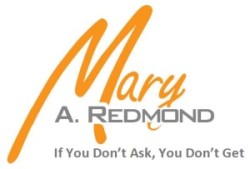Recently, a Pennsylvania commercial printer, we’ll call Mike, called me for help. He heard that I specialize in equipment lease negotiations. Mike was at the end of a three-year lease on two digital copiers. He wanted to buy the equipment. As I live by the rule “everything is negotiable if only you ask,” I assured him I could help.
Do Your Homework
Negotiation step one is to research all available facts. “Knowledge is power,” Sir Francis Bacon advised. The more I know about my customer’s wants and needs the better I am at negotiating.
Here’s what I did to prepare.
Step 1. I researched Mike’s short-term and long-range equipment plans, and gathered copies of the lease contract, information on the leasing company, equipment dealer and investigated used equipment values.
Step 2. Prepared a plan for the various negotiation outcomes.
Step 3. Located the right person with whom to negotiate. I started with the leasing company and was told that the dealer controlled the end of lease purchase price. Not to spoil the story, however, sometimes what we are initially told is not the final word.
The dealer salesperson was identified as my “go to guy.” It became obvious after two discussions that he: 1) Had little authority and 2) If he had power, he was unwilling to lower the purchase price. He felt that he had given the customer several opportunities to accept HIS proposal for a lease extension. What did the customer want? Mike wanted to purchase the equipment, not sign a two-year lease renewal.
Numerous telephone conversations ensued. The dealer position remained unchanged. The salesman’s voice indicated his boredom with the negotiation and an unwillingness to make any concessions. He had no further interest in helping Mike. He was only interested in his position. Did he win the battle but lose the war? YES.
Step 4. Don’t give up. Go back to the beginning. Mike’s story concludes happily. I returned to the leasing company and finally reached a manager that uttered the beautiful words “You’d like to negotiate? I can help you.” She immediately reduced Mike’s purchase price by 50%.
Are you listening to your customer? Do you work as their partner or are you in the deal for a commission check? That is transactional thinking. Instead, build relationships. I refer to my “customers” as clients. I am an adviser and confidante. What do your customers call you?
Mary Redmond is a top-rated female professional speaker, author, consultant and business coach. She is a negotiation and body language expert that instills confidence, inspiration and expert knowledge that sets up her audiences for success!


